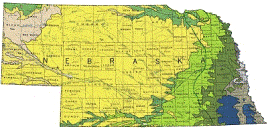United States Geological Survey

United States Geological Survey: Staff Publications
Document Type
Article
Date of this Version
12-17-2007
Abstract
Disturbances can significantly affect the thermal regime and community structure of wetlands. We investigated the effect of a wildfire on water temperature of seasonal, montane wetlands after documenting the colonization of recently burned wetlands by the Boreal Toad (Bufo boreas boreas). We compared the daily mean temperature, daily maximum temperature, and accumulated growing degree·days measured on the north shore of three classes of wetlands: unburned wetlands, burned wetlands that were colonized by breeding toads, and burned wetlands that were not colonized. We hypothesized that toads colonized burned wetlands because they were warmer than unburned wetlands and selected specific burned wetlands because they were warmer than neighboring burned sites. There was weak evidence that toads selected burned wetlands with higher temperature maxima; however, the differences were small (≤ 1°C) and were not supported when accounting for geography and wetland features. We also found no evidence that burning the forest around wetlands increased water temperatures two and three years after the fire. Unburned wetlands had higher daily mean and maximum temperatures and accrued more growing degree·days than either class of burned wetlands. Temperature differences among groups of wetlands seemed to be driven by subtle differences in geography. We suspect we did not find warmer temperatures in burned wetlands because all of the wetlands we monitored already had open canopies and the fire likely resulted in only small increases in incident radiation.


Comments
Published in Herpetological Conservation and Biology 3(1) (2008).